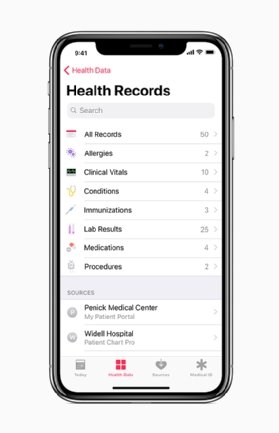What is the Patient Protection and Affordable Care Act (PPACA, ACA or Obamacare)?
The Affordable Care Act (ACA), formally known as the Patient Protection and Affordable Care Act, is a landmark healthcare law Congress enacted and former President Barack Obama signed in March 2010. Commonly called Obamacare, the ACA is one of the most significant overhauls of the U.S. healthcare system since Medicare and Medicaid emerged in 1965.
The ACA is intended to expand access to affordable health insurance, protect patients against insurance company abuses and reduce overall healthcare costs by encouraging preventive care, transparency, and quality-driven reimbursement models.
The ACA remains in effect, though it has undergone amendments and legal challenges since its passage.
Key features of the ACA
Under the ACA, most Americans can purchase health insurance coverage, often with the help of government subsidies. Several of the law's core features continue to shape the U.S. healthcare system:
- Protections for preexisting conditions.
- Coverage for dependents up to age 26.
- Standardized summaries of benefits in plain language.
- Access to primary care providers of choice.
- Free preventive services under most insurance plans.

The law also introduced new regulations for insurers, employers and healthcare providers, promoting more patient-centric and value-based care. The ACA also incentivizes and mandates the adoption of electronic health records, a form of portable health record, to improve healthcare quality, reduce costs, and enhance patient access to their health information.
Individual mandate: Still in effect?
Initially, the ACA required all adult U.S. citizens and legal residents to have health insurance or face a tax penalty -- commonly known as the individual mandate. While individual responsibility remains an ACA principle, that aspect of the law's reach now depends largely on state-level enforcement and support programs.
As of 2019, there is no longer a federal financial penalty for being uninsured. However, some states, including California, Massachusetts and New Jersey, have reinstated their own mandates, requiring residents to maintain coverage or pay a state-level penalty.
ACA requirements for employers
The employer mandate remains in place and continues to apply to Applicable Large Employers (ALEs) -- defined as companies with 50 or more full-time equivalent (FTE) employees. Key employer obligations include the following:
- Offering affordable health insurance that meets minimum value standards.
- Reporting healthcare coverage information to the Internal Revenue Service and employees.
- Complying with sections 4980H(a) and 4980H(b) of the Internal Revenue Code or facing penalties.
Small businesses with fewer than 50 FTEs are exempt from this mandate but can offer insurance through the Small Business Health Options Program (SHOP) for tax advantages.
ACA health insurance exchanges
To support individuals without employer-based insurance, the ACA established state-run and federally-facilitated health insurance exchanges -- online marketplaces that offer the following to consumers:
- Compare health insurance plans.
- Apply for premium tax credits and subsidies.
- Determine eligibility for Medicaid or the Children's Health Insurance Program (CHIP).
These marketplaces are accessible at HealthCare.gov and through state-specific exchange portals. With millions still using these exchanges each year, they remain a central pillar of ACA-driven insurance expansion.
What the ACA does today
Today, the ACA continues to enforce the following:
- Prohibit denial of coverage based on pre-existing conditions.
- Require essential health benefits to be included in all marketplace plans.
- Regulate out-of-pocket cost limits for insured patients.
- Promote preventive care, mental health coverage, and maternal health services.
- Provide coverage to over 30 million Americans, either through private insurance or Medicaid expansion.
Public opinion and ongoing debate
The ACA has always been a hot topic. While public support has grown since its introduction, some provisions -- especially the former individual mandate -- remain divisive:
- Republican-led repeal efforts during the previous Trump administration resulted in the removal of the individual mandate penalty but not the core law.
- Former President Joe Biden's administration reinforced and expanded ACA subsidies through the American Rescue Plan (2021) and Inflation Reduction Act (2022). These expansions have since been extended through 2025, offering enhanced premium tax credits to more Americans.
The ACA remains a fundamental part of U.S. healthcare reform efforts. It laid the foundation for many value-based initiatives, such as the following:
- Accountable Care Organizations (or ACOs).
- Hospital Readmissions Reduction Program.
- Bundled Payment Models.
- Quality Payment Program (or QPP) under the Medicare Access and CHIP Reauthorization Act, widely referred to as MACRA, (2015).
These models aim to reward healthcare providers for quality and efficiency rather than volume of services.
Learn the basics of healthcare consumerism, explore the top ways AI will impact healthcare and see what are the vulnerable populations in healthcare.





